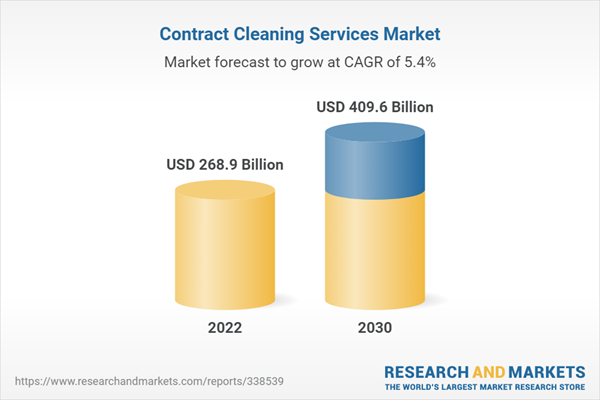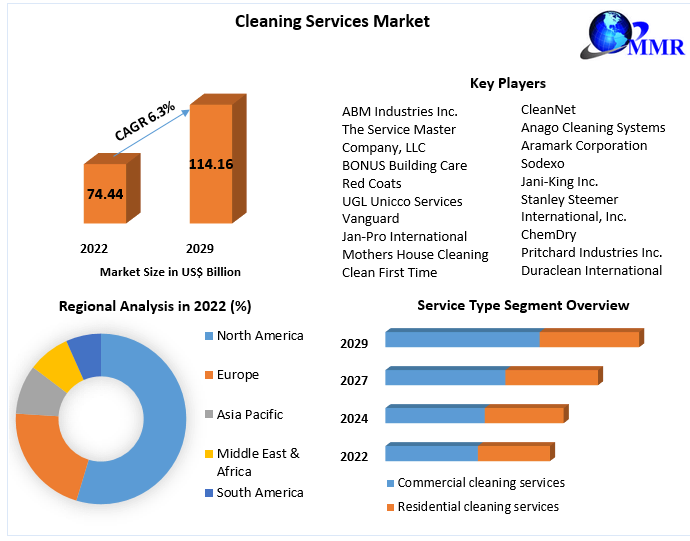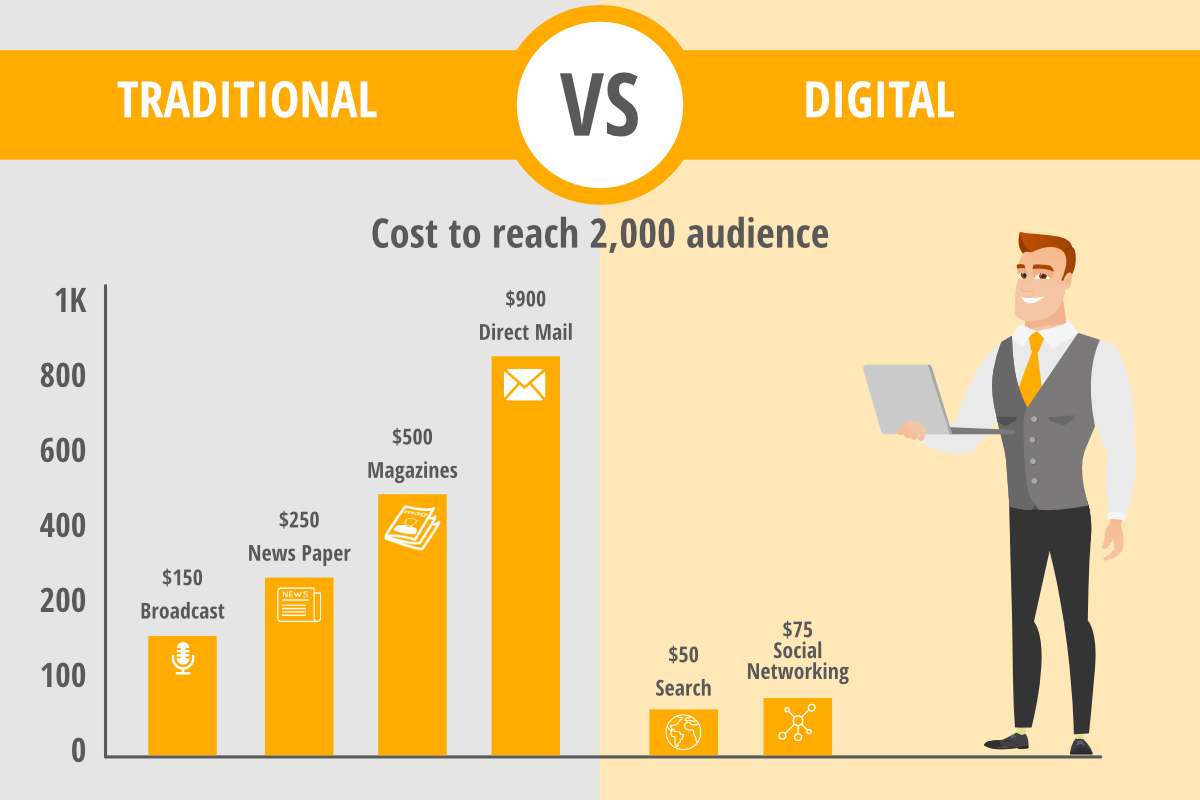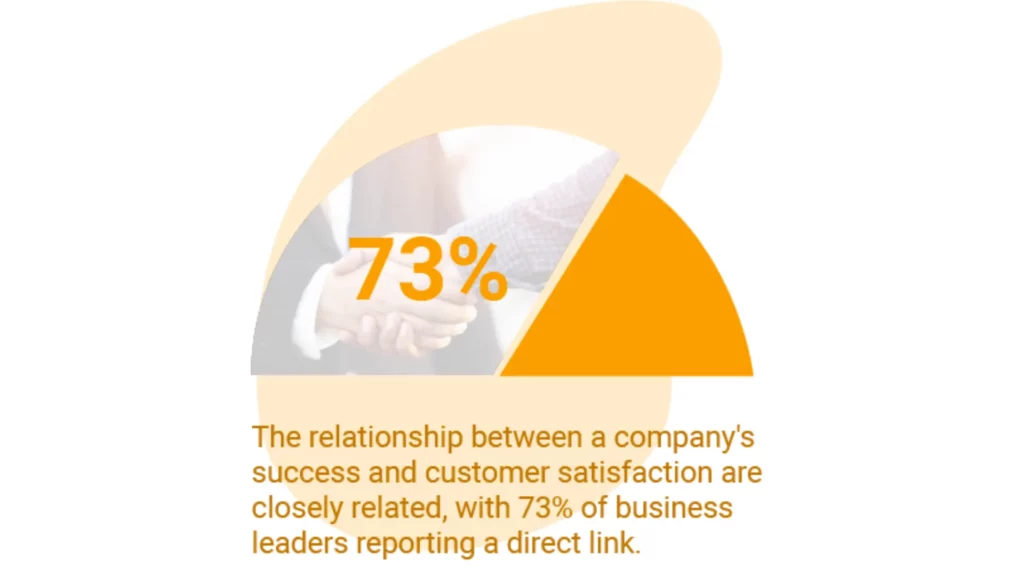Starting a floor cleaning business offers a fantastic opportunity to be your boss and create a successful venture in a growing market. Current projections show the floor cleaning business industry reaching a value of $20.46 billion by 2030.

Imagine the satisfaction of transforming dirty, dull floors into gleaming, spotless surfaces that leave your clients in awe. As a floor cleaning business owner, you’ll have the chance to build a loyal customer base and establish a reputation for excellence in your community.
In this comprehensive guide, we’ll walk you through how to start a floor-cleaning business. Topics include market research, competitive analysis, registering an EIN, marketing, customer focus, obtaining business insurance, and more.
1. Conduct Floor Cleaning Market Research
Conducting thorough market research is crucial when starting a floor cleaning business. It helps you understand the industry landscape, identify potential customers, and assess the viability of your venture.

To gain a deeper understanding of your target market, consider analyzing demographic data, such as age, income, and homeownership rates in your area. The U.S. Census Bureau provides comprehensive demographic information that can help you identify potential customer segments. Additionally, research the types of flooring commonly found in your target market, as this will influence the services you offer and the equipment you’ll need.
Analyzing your competition is another essential aspect of market research. Identify the existing floor cleaning businesses in your area and assess their strengths, weaknesses, and pricing strategies.
Look for gaps in the market that your business can fill, such as offering eco-friendly cleaning solutions or specializing in a specific type of flooring. IBISWorld provides valuable insights into the janitorial services industry, including key players, market trends, and growth opportunities.
By conducting thorough market research, you’ll be better equipped to develop a solid business plan, identify your unique selling proposition, and position your floor cleaning business for success in a competitive market.
2. Analyze the Competition
Analyzing your competition is a crucial step when starting a floor cleaning business. Begin by identifying the existing floor cleaning companies in your target market, including both brick-and-mortar businesses and online service providers.
Google My Business and Yelp are excellent resources for finding local competitors and assessing their online presence. Once you’ve identified your competitors, visit their websites and social media profiles to gather information about their services, pricing, and target audience.
For brick-and-mortar competitors, consider visiting their physical locations to assess their operations, customer service, and the quality of their work. If possible, pose as a potential customer and request a quote for their services. This will give you an idea of their pricing structure and how they communicate with clients.
To gain a deeper understanding of your competitors’ online presence, use tools like SEMrush or Ahrefs to analyze their website traffic, search engine rankings, and backlink profiles. This information can help you identify opportunities to outrank your competitors in search results and attract more organic traffic to your website.
Don’t forget to monitor your competitors’ social media activity, as this can provide valuable insights into their marketing strategies and customer engagement. Use tools like Hootsuite or Sprout Social to track your competitors’ social media posts, follower growth, and engagement rates.
By thoroughly analyzing your competition, you’ll be better equipped to differentiate your floor cleaning business, identify gaps in the market, and develop strategies to attract and retain customers in a competitive landscape.
3. Costs to Start a Floor Cleaning Business
Starting a floor cleaning business requires careful planning and budgeting to ensure a successful launch and sustained growth. Let’s break down the start-up costs and ongoing expenses you can expect when embarking on this venture.
Start-up Costs
Business Registration and Licenses: Depending on your location, you may need to register your business and obtain the necessary licenses and permits. These costs can range from $100 to $500.
Equipment: Investing in high-quality floor cleaning equipment is essential for delivering excellent results and building a strong reputation. Some key equipment costs include:
- Floor buffers and polishers: $1,000 to $5,000
- Vacuum cleaners: $300 to $1,500
- Mops, brooms, and other cleaning tools: $200 to $500
- Cleaning solutions and supplies: $500 to $1,000
Vehicle: A reliable vehicle is necessary for transporting your equipment and reaching clients. Depending on your needs, you can purchase a used van for $10,000 to $20,000 or lease one for $300 to $800 per month.
Insurance: Protect your business with general liability insurance and workers’ compensation insurance (if you have employees). Insurance costs can vary but expect to pay around $500 to $2,000 annually.
Marketing and Advertising: Invest in marketing materials such as business cards, flyers, and a website to attract customers. Allocate $500 to $2,000 for initial marketing efforts.
Total Start-up Costs: Approximately $12,600 to $32,000
Ongoing Costs
Cleaning Supplies: Regularly replenish your cleaning solutions, pads, and other consumables. Budget around $200 to $500 per month.
Vehicle Maintenance and Fuel: Maintain your vehicle and account for fuel costs, which can range from $200 to $500 monthly, depending on your service area and the number of clients.
Equipment Maintenance and Replacement: Set aside funds for maintaining and replacing your equipment as needed. Annual costs can range from $500 to $2,000.
Rent or Mortgage: If you need a physical office or storage space, factor in monthly rent or mortgage payments, which can vary greatly depending on location and size. Expect to pay anywhere from $500 to $2,000 per month.
Utilities: Budget for electricity, water, and internet/phone services, which can cost around $200 to $500 monthly.
Labor Costs: As your business grows, you may need to hire employees. Factor in wages, benefits, and payroll taxes, which can range from $2,000 to $6,000 per month per employee.
Business Insurance: Maintain your general liability and workers’ compensation insurance, which can cost $500 to $2,000 annually.
Marketing and Advertising: Continue to invest in marketing efforts to attract new clients and maintain a strong brand presence. Allocate $300 to $1,000 per month for ongoing marketing.
Administrative Expenses: Account for miscellaneous expenses such as office supplies, bookkeeping, and professional fees (e.g., accountants, lawyers). Budget around $200 to $500 per month.
Total Ongoing Costs: Approximately $4,600 to $15,000 per month
Keep in mind that these costs are estimates and can vary depending on factors such as your location, target market, and business scale. It’s essential to create a detailed business plan and regularly review your finances to ensure the sustainability and profitability of your floor cleaning business.
4. Form a Legal Business Entity
As you start a cleaning business, choosing the right legal entity is crucial for protecting your assets, limiting liability, and setting the foundation for future growth. Let’s explore the four main types of business entities and their pros and cons specifically for a floor cleaning business.
Sole Proprietorship
A sole proprietorship is the simplest and most common business structure. As a sole proprietor, you have complete control over your floor-cleaning business and can make all decisions independently. You are also personally responsible for all debts and liabilities incurred by the business.
Partnership
A partnership involves two or more individuals who share ownership of the floor-cleaning business. Partnerships can be either general partnerships or limited partnerships. In a general partnership, all partners are equally liable for the business’s debts and obligations.
Corporation
A corporation is a separate legal entity from its owners, providing the highest level of personal asset protection. Corporations offer limited liability protection, meaning that shareholders’ assets are generally not at risk. However, they are highly expensive and complicated to apply for and best suited to large commercial cleaning companies.
Limited Liability Company (LLC)
An LLC combines the personal asset protection of a corporation with the simplicity and flexibility of a sole proprietorship or partnership. For a floor cleaning business, forming an LLC is often the best choice. As an LLC owner, you are not personally liable for the business’s debts and obligations.
5. Register Your Business For Taxes
Registering your floor cleaning business for taxes is a crucial step in ensuring compliance with federal and state regulations. One of the first things you’ll need to do is obtain an Employer Identification Number (EIN), also known as a Federal Employer Identification Number (FEIN).
An EIN is a unique nine-digit number assigned by the Internal Revenue Service (IRS) to identify your business for tax purposes. Even if you’re operating your floor cleaning business as a sole proprietorship, obtaining an EIN is essential.
To apply for an EIN, visit the IRS website and follow these steps:
- Click on the “Apply Online Now” button.
- Read the instructions and click “Begin Application.”
- Select the type of EIN you’re applying for (e.g., sole proprietorship, LLC, corporation).
- Provide your personal information and answer questions about your floor cleaning business.
- Review and submit your application.
Once your application is processed, you’ll receive your EIN immediately. There is no cost associated with obtaining an EIN, and the process typically takes less than 15 minutes.
In addition to obtaining an EIN, it’s crucial to register your floor cleaning business with your state’s tax department. This is necessary for collecting and remitting sales tax on your services, as well as complying with any other state-specific tax requirements.
The cost of registering your business for state taxes varies depending on your location. Some states charge a one-time fee, while others have ongoing annual fees. For example, in California, the initial fee for a seller’s permit (required for collecting sales tax) is $34, with a $48 annual renewal fee.
6. Setup Your Accounting
Setting up proper accounting practices is crucial for the success of your floor cleaning business. Accurate financial records help you make informed decisions, monitor your business’s health, and comply with tax requirements.
Open a Business Bank Account
One of the first steps in establishing a solid accounting system is to separate your personal and business finances. This means opening a dedicated business bank account and obtaining a business credit card. Mixing personal and business expenses can create confusion.
Accounting Software
To streamline your accounting processes, consider investing in accounting software like QuickBooks. QuickBooks automates many aspects of your financial management, including invoicing, expense tracking, and financial reporting.
Hire an Accountant
Working with a professional accountant can provide additional benefits for your floor-cleaning business. An accountant can offer expert advice on tax planning, financial strategy, and compliance issues. They can handle complex tasks like bookkeeping, financial statement preparation, and tax filing.
Apply for a Business Credit Card
When applying for a business credit card, you’ll typically need to provide information about your business, such as your EIN, business structure, and revenue. Business credit card issuers will also consider your personal credit history and income when determining your eligibility and credit limit.
7. Obtain Licenses and Permits
Obtaining the necessary licenses and permits is a critical step in starting your floor-cleaning business. Find federal license information through the U.S. Small Business Administration. The SBA also offers a local search tool for state and city requirements.
The specific licenses and permits needed for your floor cleaning business may vary depending on your location and the scope of your services. However, some common licenses and permits include:
- Business License: Most states and local governments require businesses to obtain a general business license. This license grants you the right to operate your floor cleaning business within a specific jurisdiction.
- Professional Cleaning License: Some states, such as Florida, require floor cleaning businesses to obtain a professional cleaning license.
- Occupational Safety and Health Administration (OSHA) Compliance: As a floor cleaning business, you must comply with OSHA regulations to ensure the safety of your employees and customers.
- Environmental Permits: If your floor cleaning business uses chemicals or generates waste, you may need to obtain environmental permits.
- Zoning Permits: If you plan to operate your floor cleaning business from a physical location, such as a warehouse or office, you may need to obtain zoning permits.
- Building Permits: If you plan to construct or renovate a physical space for your floor cleaning business, you may need to obtain building permits.
Obtaining the necessary licenses and permits for your floor cleaning business may seem daunting, but it’s a crucial step in establishing a legitimate and compliant venture. By taking the time to research and obtain the required licenses and permits, you’ll protect your business from legal issues.
8. Get Business Insurance
Business insurance is a crucial component of running a successful floor cleaning business, as it protects your company from potential financial losses arising from accidents, injuries, property damage, and legal claims. Without adequate insurance coverage, a single unfortunate event could jeopardize the future of your business.
Imagine these situations:
- You’re cleaning a client’s expensive hardwood floors and accidentally damaging them with your equipment. Without proper insurance, you’d be personally liable for the cost of repairs or replacement, which could be financially devastating for your business.
- If one of your employees slips and falls while cleaning a commercial space, sustaining a serious injury, you could face significant out-of-pocket expenses for medical bills and potential legal fees if you don’t have workers’ compensation insurance.
- If a customer claims that your cleaning products caused an allergic reaction, leading to medical expenses and lost wages, you’d be responsible for covering the costs associated with legal defense and any settlements or judgments against your business if you don’t have liability insurance.
To protect your floor cleaning business from these and other potential risks, it’s essential to obtain the right insurance coverage. Start by evaluating the specific risks associated with your floor cleaning business, such as property damage, personal injury, and legal liability, considering factors like the size of your business.
Contact several insurance providers and request quotes based on your specific business needs, providing detailed information about your business, including revenue, number of employees, and types of services offered. Compare the quotes you receive to find the most comprehensive coverage.
Carefully review the terms and conditions of your selected insurance policy, ensuring that you understand what’s covered, what’s excluded, and any deductibles or limits that apply. Once you’re satisfied with the policy, purchase your coverage and keep a copy of your insurance documents in a safe place.
9. Create an Office Space
Creating an office space for your floor cleaning business can provide numerous benefits, such as increased productivity, professionalism, and organization. An office space serves as a centralized location for managing administrative tasks, storing equipment and supplies, and meeting with clients.
Home Office
For small floor-cleaning businesses or solo entrepreneurs, a home office can be a practical and cost-effective solution. Setting aside a dedicated room or area in your home for work purposes allows you to keep your business organized and separate from your personal life.
Coworking Office
Coworking spaces offer a flexible and affordable alternative to traditional office spaces. WeWork is a popular coworking space provider, offering a range of membership options and amenities, such as high-speed internet, printing services, and meeting rooms.
Retail Office
If your floor cleaning business offers products or services directly to customers, retail office space may be a good fit. A retail office combines a storefront with a workspace, allowing you to showcase your products, meet with clients, and handle administrative tasks in one location.
10. Source Your Equipment
Sourcing equipment for your floor cleaning jobs is a crucial step in getting your venture off the ground. The required materials and equipment may vary depending on the types of services you offer and the scale of your operations but typically include floor buffers, vacuum cleaners, mops, and brooms.
Buying New
Purchasing new equipment ensures that you have reliable, high-quality tools that are covered by manufacturer warranties. Buy new equipment from local janitorial supply stores or online retailers like Grainger, or Jon-Don. Buying new equipment can be more expensive upfront.
Buying Used
If you’re on a tight budget, buying used equipment from a floor cleaning company can be a cost-effective solution. You can find used floor cleaning equipment on online marketplaces like Facebook Marketplace, eBay, Craigslist, and Letgo.
Renting
Renting floor cleaning equipment can be a smart choice if you’re just starting or have limited storage space. Renting allows you to access high-quality equipment without a large upfront investment or long-term commitment. You can rent equipment from local janitorial supply stores or national rental companies.
Leasing
Leasing floor cleaning equipment is another option that offers flexibility and affordability. With a lease, you make monthly payments to use the equipment for a set period, typically 1-5 years. At the end of the lease, you can choose to purchase the equipment, renew the lease, or return it.
11. Establish Your Brand Assets
Establishing a strong brand is crucial for any floor cleaning business looking to stand out in a competitive industry. A well-defined brand helps create a memorable and recognizable identity, which can attract prospective clients, foster loyalty, and ultimately drive business growth.
Getting a Business Phone Number
Having a dedicated business phone number is essential for projecting a professional image and ensuring that customers can easily reach your carpet cleaning business. A service like Ring Central offers virtual phone systems that allow you to manage calls, voicemails, and text messages from any device, making it an ideal solution.
Creating a Logo and Brand Assets
A well-designed logo is the foundation of your brand identity. It should be memorable, versatile, and reflective of your business’s values and personality. Looka is an AI-powered logo design platform that can help you create a professional logo and matching brand assets, such as color palettes and typography.
Creating Business Cards and Signage
Business cards are a tangible representation of your brand and a powerful networking tool. Vistaprint offers a wide range of customizable business card templates and printing options to suit your needs and budget.
Purchasing a Domain Name
Securing a domain name that reflects your business name or brand is crucial for establishing an online presence. When choosing a domain name, consider the following best practices:
- Keep it short, memorable, and easy to spell
- Use relevant keywords that describe your business or location
- Avoid hyphens, numbers, or unusual extensions
- Choose a .com extension whenever possible
- Protect your brand by purchasing variations of your domain name
Namecheap is a reliable and affordable domain registrar that offers a user-friendly interface and excellent customer support.
Building a Website
In today’s digital age, having a professional website is non-negotiable. Website builders like Wix offer user-friendly drag-and-drop interfaces and pre-designed templates. Hiring a professional web designer or developer from a platform like Fiverr can help you create a custom website tailored to your specific needs and brand identity.
12. Join Associations and Groups
Joining associations and groups can be a game-changer for anyone starting a floor cleaning service. These communities provide invaluable opportunities to network with industry professionals, learn trade secrets, and stay up-to-date on the latest trends and best practices.
Local Associations
Local associations are an excellent resource for connecting with other commercial cleaning business professionals in your area. The ISSA (International Sanitary Supply Association or Worldwide Cleaning Association) has local chapters throughout the United States that offer networking events, educational resources, and industry certifications.
Local Meetups
Attending local meetups and tradeshows is another great way to connect with other commercial cleaning services and potential clients. Meetup is a popular platform that makes it easy to find and attend local events related to your industry. Simply search for “floor cleaning” or “janitorial services” in your area.
Facebook Groups
Facebook groups have become a valuable resource for business owners looking to connect with others in their industry, share advice, and learn from experienced professionals. There are numerous Facebook groups for cleaners including Commercial & Residential Cleaning Business Owners.
13. How to Market a Floor Cleaning Business
Marketing is the lifeblood of any business, and a floor-cleaning business is no exception. To grow your customer base and increase revenue, you must implement effective marketing strategies that showcase your services, build brand awareness, and attract potential clients.

Personal Networking
When starting, your network is the most valuable asset for generating initial business. Reach out to friends, family, and acquaintances who may need floor cleaning services or know someone who does. As you begin to serve customers and deliver excellent results, encourage them to refer your business to others.
Digital Marketing
- Create a Google My Business listing to appear in local search results and encourage customers to leave reviews
- Run targeted Google Ads campaigns focusing on specific keywords related to floor cleaning services in your area
- Develop a strong social media presence on platforms like Facebook and Instagram, sharing before-and-after photos, tips, and special promotions
- Start a YouTube channel featuring educational content, such as DIY cleaning tips or demonstrations of your cleaning process
- Implement an email marketing campaign to keep customers informed about new services, discounts, and special offers
Traditional Marketing
- Distribute flyers and door hangers in targeted neighborhoods, apartment complexes, or commercial areas
- Send direct mail postcards to potential customers, highlighting your services and any introductory offers
- Sponsor local events or sports teams to increase brand visibility and community engagement
- Advertise in local newspapers, magazines, or community bulletins
- Invest in vehicle wraps or magnets to turn your work vehicles into mobile billboards
While traditional marketing methods can be effective for certain businesses, it’s essential to consider the return on investment (ROI) when allocating your marketing budget. In many cases, digital marketing tactics offer more targeted reach and measurable results at a lower cost than traditional methods.
14. Focus on the Customer
In the floor cleaning business, customer service is a crucial factor that can make or break your success. Exceptional customer service not only leads to satisfied clients but also generates valuable word-of-mouth referrals, which can significantly grow your business.

To provide outstanding customer service, start by actively listening to your clients’ needs and concerns. Take the time to understand their specific requirements, such as the type of flooring they have, any special cleaning requests, or scheduling preferences.
Consistency and reliability are also key components of excellent customer service. Ensure that you always arrive on time, deliver the promised services, and maintain a high standard of quality. If you encounter any issues or delays, communicate proactively with your clients and work towards a satisfactory resolution.
Go above and beyond to create a memorable experience for your clients. Consider offering additional services or helpful tips to maintain their floors between cleanings. Follow up after each service to ensure their satisfaction and address any concerns promptly.
